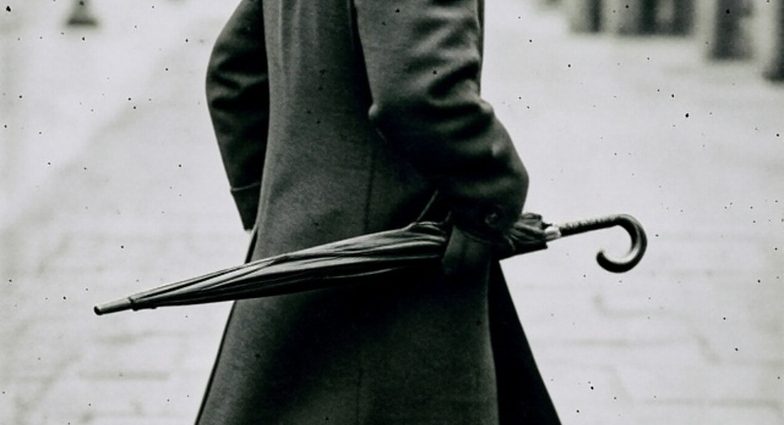By Staff Correspondent, Society & Health Desk
In an age increasingly obsessed with speed, it is refreshing—if not entirely fashionable—to remember that walking remains the most respectable means of going anywhere worth arriving at. The motorcar roars, the bicycle wobbles, and the omnibus coughs, but the walker proceeds at a human pace, one foot in front of the other, and nearly always gets there eventually.
 Physicians of the Royal Institute of Bodily Rectitude have lately rediscovered what the rest of us never quite forgot: that a brisk constitutional after breakfast does more for the heart, lungs, and disposition than any tonic, tablet, or theory of modern improvement. The late Dr. Halversham once remarked that “the legs are merely the heart’s more determined ambassadors.” If true, they deserve diplomatic immunity from idleness.
Physicians of the Royal Institute of Bodily Rectitude have lately rediscovered what the rest of us never quite forgot: that a brisk constitutional after breakfast does more for the heart, lungs, and disposition than any tonic, tablet, or theory of modern improvement. The late Dr. Halversham once remarked that “the legs are merely the heart’s more determined ambassadors.” If true, they deserve diplomatic immunity from idleness.
A proper walk, however, is not merely locomotion. It is philosophy in motion—exercise conducted at the speed of thought. Those who walk too quickly may achieve fitness, but seldom wisdom. Those who walk too slowly tend to notice it. The ideal pace, according to common sense (which outranks every physician on this subject), is the one at which the mind can keep company without gasping for air.
Preparations and Proper Attire
A sensible pair of shoes is indispensable. The fashionable narrow-toed monstrosities of the capital are better suited to martyrdom than movement. Choose instead shoes that look as though they might forgive you after a mile. A walking stick, properly balanced, adds grace, security, and the illusion of purpose. Hats should be worn but not fretted over; a man or woman perpetually adjusting their brim cannot claim to be communing with nature.
The Correct Route
A walk should lead somewhere, but not urgently. The destination is a courtesy, not a command. Country lanes, public parks, or the quieter corners of Inverness all qualify, provided they contain something green, something alive, and ideally, somewhere to sit upon realising one has gone too far. Those compelled to walk indoors (clerks on long corridors, soldiers on night watch, or penitents before confession) are advised to imagine trees and fresh air until liberty resumes.
The Companionship Question
It is perfectly respectable to walk alone, though some prefer company of the conversational or canine kind. A good companion must possess the rhythm of thought that complements one’s stride. The bore walks too slowly between stories; the wit too quickly between remarks. The perfect walking partner listens when the road rises and talks when it falls.
The Mind in Motion
Something curious occurs after twenty minutes of steady progress: the mind begins to loosen its knots. Problems rearrange themselves into perspective, grievances shrink to portable size, and the world’s general absurdity becomes almost charming. Poets claim to walk for inspiration; most people walk to remember what sanity feels like. Both ends are commendable.
Even the body, usually content to sulk through its chores, becomes almost musical. The lungs behave themselves, the shoulders square without prompting, and the heart keeps time like a polite metronome. Only the feet complain, but then, they were designed to.
Returning Home
A good walk concludes with the agreeable illusion of accomplishment. One returns slightly flushed, faintly virtuous, and newly interested in lunch. It is recommended that one not immediately boast of the experience; modesty, after all, burns more calories than pride.
Those wishing to measure the benefit numerically may do so by the improvement of mood, appetite, or opinion of mankind. If, upon returning, one finds other people less irritating and oneself less important, the walk has succeeded.
Moral of the Miles
In a Kingdom now dominated by engines, telegrams, and the dreadful urgency of being somewhere else, the walker is a quiet revolutionary. To walk is to declare independence from haste. It is to reassert that progress need not always be noisy, nor virtue expensive.
As the philosopher Bertram Lysander once observed during a stroll across the Northern Fields:
“I have never known a scoundrel who could keep decent pace for more than half a mile.”
The remedy, then, is obvious: walk daily, think kindly, and rest occasionally to admire the absurd magnificence of existence. The world, when viewed at walking speed, proves almost reasonable after all.
